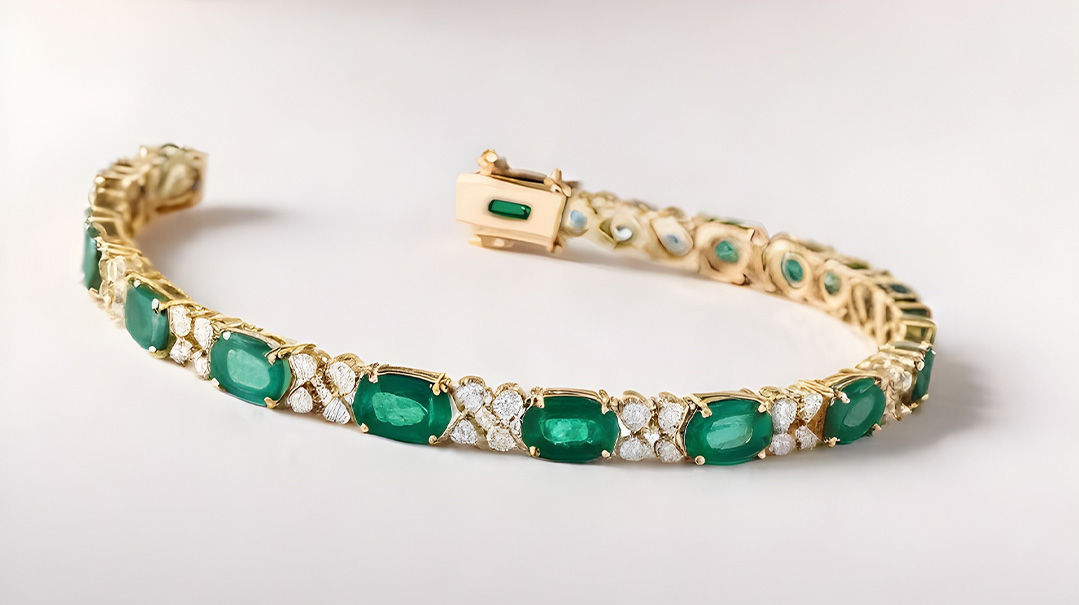In Small Measure
| April 16, 2024My heart squeezes because he’s captured the crux of his problem: It really may be too late

“He’s dying? Not sure I believe it. I’ve never met a man who lies as much as my brother.”
“Alex, I’m privy to every patient’s medical file, and unfortunately, the reality is that your brother is dying. The cancer has metastasized all over his body,” I say into the phone, trying to infuse both silk and steel into my voice. “He knows he made mistakes, and those mistakes have been haunting him. He’s asking, begging really, that you come. He wants to speak to you while he still can.”
“Classic!” The man literally snorts. “I’m supposed to trek across the country, rush to his bedside so he can relieve his guilty conscience. And those ‘mistakes’?” Another snort. “Gotta love it. A mistake is when you bump into another car because you misjudged how far it was from yours. No one robs his only brother of his entire inheritance ‘by mistake.’ ” His voice cracks, pain oozing past the rage.
“He hurt you,” I say quietly. “He hurt you badly.” I pause, letting my words sink in, letting the man on the other side of the line know that his pain is seen, acknowledged, heard. That has to happen before I can move forward.
There’s heavy breathing, and then, slowly, it softens. I take that as my cue. “Alex, you have every right to say you never want to see Robert again. No one would blame you — not even Robert. Especially not Robert.” I pause. Then, “But picture a year from now. The doctor estimates Robert has a month left, two tops. How will you feel in a year, in five years, in ten years, when you think back to this time, to your brother being alone during the scariest moments of his life?”
I give it another pause to let it sink in, let him face the bleak reality, the stark options ahead of him.
“I don’t want to pressure you,” I say. “I don’t expect, or even want, an answer right now. Think it over. I’ll call you back in a few days.” I wait a heartbeat, then end the call.
I walk slowly back to Robert’s room. He looks up, his eyes alight with hope while his mouth droops downward in defeated resignation. “He said no. Right? He hates me!” he says as soon as I enter.
I choose my response carefully. I will never lie to a dying person — or any person for that matter. But I also believe that the full truth is sometimes too brutal to hear. “He isn’t ready just yet,” I finally say. “But we spoke, and it sounds like he’s considering it.”
“Considering isn’t enough! I need him to come!”
“Robert, how many years did it take for this fight to drive you completely apart?”
Robert looks down. “Not long at all. I was a total jerk. Our relationship exploded only five or six weeks after our parents died.”
“We may need to give it that much time to heal.”
“I don’t have that much time,” he hisses, the words laced with both anger and raw terror. I give a noncommittal nod and bring him ice water with a straw. The blisters on his mouth make it hard to drink, but he needs to stay hydrated.
“I’ll call Alex next week. Overhauling feelings in an hour is hard. Let the new reality sink in for a few days.”
“A lot of help you are. I thought you end-of-life doulas are supposed to ‘facilitate meaningful interactions with family and foster reconciliation if necessary.’ ” He surrounds the words he must have memorized from our brochure in air quotes and throws in an eye roll for good measure. “Sure don’t look like reconciliation to me.”
When people are least likeable is when they need you the most, I remind myself as I take a deep breath. Then I look Robert in the eyes.
“This is disappointing. I wish my conversation with Alex had gone differently. But I’ll keep trying until things change.”
“Or until I die,” he mutters.
And my heart squeezes because he’s captured the crux of his problem: It really may be too late.
“HI, I’m home,” I call out as I enter the house and head to the living room.
Uriel and Temima are engrossed in building an enormous structure out of Magna-Tiles, and Layle is bent over her homework at the table.
“And how are the cutest little people in the world?” I ask, crouching down.
“I’m not little!” protests Uriel at the same time that Temima gives me a distracted smile and then turns back to add another tile to her creation.
I rub her arm, pat Uriel on the back, then head over to the table, where I slide into a chair next to Layle.
“Dikduk again?”
“Yes. And I hate it! It makes no sense!” Layle throws down her pencil and stomps her feet.
“Dikduk can be tough,” I say. “Did you ask Daddy for help?”
“Daddy said he never learned dikduk, he said you need to help me. But you’re leaving again. We ate early ’cuz the babysitter is coming in a few minutes.”
Babysitter? Early supper? What on earth? My mind is racing, trying to put all the puzzle pieces together. Oh, wait, is today the eighth? Oh, no, please not!
If today is the eighth, that means it’s the night of Rafi’s cousin’s wedding, a high-end affair we need to attend from start to finish because that’s what his mother expects. And omigosh, I was supposed to come home early; he specifically asked me to because he hates rushing. And the chuppah is called for seven thirty and it’s an hour-and-a-half drive, and yiiiiiikes, it’s five to six and I’m not even close to dressed.
Beside me, Layle lobs her workbook across the room. I watch with rising dread as it flies through the air and then scores a direct hit on the elaborate structure the younger ones have been laboring over.
“Noooooooo!” Temima wails.
“You meanie!” screams Uriel. “You broke our castle! I hate you!”
Layle’s face is a kaleidoscope: a fleeting moment of horror, a flash of regret, and then the sullen defiance she wears as her shield of choice.
I’m debating who to tend to first, when Rafi bursts in from the kitchen.
“What’s going on in here?!” he yells. Then he sees me. “Aliza! I was getting worried! You said you’d be home at five thirty so we could leave at six. Is everything okay?’’
“I’m sorry, it was an intense afternoon at work—” I trail off miserably, well-aware of how lame this sounds.
“Please just get ready now as fast as you can,” he begs. “You know how important it is to Mommy that we’re all prompt.”
The guilt floods me. A knock on the door heralds the babysitter — apparently, some people are prompt. I flee upstairs.
We’re only 20 minutes late, which seems very reasonable to me, but Rafi is still frosty and my mother-in-law looks pointedly at her watch before she gives us each a peck on the cheek.
“You’re late, but luckily, you didn’t miss the badeken. If you hurry, you can still catch most of the aunts and uncles at the shmorg.”
“We’re on it, Ma,” says Rafi with the dazzling smile that always gets him back into his mother’s good graces. We enter the cavernous hall and Rafi makes a beeline for the pulled beef. “I thought we’re supposed to do our duty and wish everyone mazel tov,” I whisper.
“I need some fortification,” he whispers back.
Once he has a dangerously overloaded plate, we begin the rounds. As always, things get awkward fast.
“So what are both of you up to these days?” Uncle Leo booms.
“I’m still running an Amazon business from home,” says Rafi.
“When are you going to get a big boy job?”
Rafi flushes, and I jump in. “Business is doing well, thank G-d,” I say. “And Rafi also helps hold down the fort since my shifts have erratic hours.”
“What are you again? A nurse?”
“Not exactly. I mean, I do work in the medical profession, but not as a nurse or doctor. I’m an end-of-life doula.”
There’s a long moment of silence. Then, “Since when do people need help dying?”
Beside me, Rafi gives a low groan. I decide to go for the short and sweet version of my job description.
“Dying isn’t about a single moment. It’s a process of taking leave of This World. And it can be incredibly overwhelming and scary for the person who’s dying. Just like a birth doula does everything she can to make birth as painless and uplifting as possible, my goal as an end-of-life doula is to do whatever it takes to allow my clients to move through their final days with dignity and courage.”
Uncle Leo has big, bushy eyebrows. Right now, they’re so high they look like they’re about to take off.
“You sure know how to talk pretty,” he says, “but death ain’t pretty. I fought in Vietnam, and—”
“Leo! Imagine meeting you here!” A white-haired gentleman descends upon us, grabbing Uncle Leo’s hand and shaking it enthusiastically. Leo nods at us, and then allows the other man to pull him away.
Rafi takes a huge bite of his beef. “Goodness, Aliza,” he says through a full mouth, “we’re at a wedding! Can we just enjoy the company and be happy?”
“That’s just the thing! We always think of death as being horribly sad, and yeah, it’s painful for everyone, but if we do it right, if I do my job right, then death doesn’t have to be so sad. And really, when we keep death in mind, it actually infuses everything—” I catch sight of Rafi’s cringe and belatedly realize his question was rhetorical.
I look around the enormous room at all the glittering people speaking about trivialities, focused on image and impressions and all the things that will matter not one whit when they’re on their deathbeds, and sigh.
Then I look back at my husband. “How’s the food?” I ask.
The next morning, I have the weekly support group I facilitate for family members. It goes overtime, and then I need to catch up on insurance paperwork, my least favorite task.
I’m definitely frazzled by the time I get to Robert’s room.
“About time!” he bellows. “I thought you’d decided to abandon me, like everyone else in my life.”
Deep breath. He’s scared and in pain, I remind myself, and he needs reassurance. “I’m not going anywhere, Robert,” I say. “Every day I’m at work, I’ll come see how you’re doing.”
His body relaxes for a moment. Then he latches on to what matters most to him right now.
“And what about my brother? Any luck with him?” He’s aiming to sound casual, but the way he leans forward and the intensity in his eyes gives him away.
“I’m so sorry, it’s been a busy morning, and I didn’t manage to call him yet. Let me step out and do it right now.”
I head to the veranda, where I’m hoping to have some privacy, scroll through my contacts, and find Alex’s number. It rings for a while before he finally picks up.
“Would you stop bothering me?!” he yells before I even say hello. “I can’t believe my brother can manage to make my life miserable even when he’s dying!”
I wait a long moment, hoping his anger will subside. “Alex, it’s your choice,” I say. “But you need to know that your brother loves you and desperately wants to tell you that.”
“You don’t know my brother!”
“You’re right, I don’t know the brother you knew. But the brother I know feels awful about what he did and really wants to reconnect.”
“Next you’re going to tell me he also wants to meet Lauren and Noah.”
“Lauren and Noah?”
A long sigh. “My wife and my little boy. But you don’t know about them, do you? How could you? My brother doesn’t even know they exist.”
I’m silent.
Finally, Alex speaks. “I’ll think about it,” he says. Then he hangs up.
I go back inside and tell Robert his brother is softening. He wants to talk about their fight again. I listen, reflect, suggest he begin journaling. By the time I leave his room, I’m drained. Regrets are hard to sit with.
I know just who will cheer me up. I head to the next floor and knock lightly on Hailey Lewis’s door.
“Come on in,” she sings. You’d think she was in her cozy apartment rather than in hospice. I enter and instantly relax.
Hailey’s room smells like cinnamon and lavender. Her children have filled it with all the things she loves — there’s an African violet in the corner, a plush teal throw on her bed, cheerful hand-painted mugs on her night table. And everywhere pictures of her grandchildren.
“Aliza! So good to see you, darling. I was about to make myself a nice cup of tea, please join me.”
A few minutes later, we’re sipping tea and Hailey is giving me the family news. “Rebecca is due in just a few months. They found out last week that it’s a little girl, and I started knitting right away.” She gestures at a ball of yarn beside her, delicate pink shot through with silver. The beginning of… a sweater? A blanket? is emerging from the knitting needles.
Is now the right time to bring up the fact that Hailey will probably never see this granddaughter? An end-of-life doula is there to have all the conversations no one else wants to have with the dying person. But you also don’t want to depress them. I take it slowly.
“What does Dr. Herber say?”
“My kidneys are failing, and it’s just a matter of time before dialysis stops working. He’s giving me a month or two,” Hailey says, her voice unchanged from her usual upbeat tone. “I can finish a blanket in that time. Even if this little girl never meets her grandma, she’ll have something from me that she can hold. She’ll know I loved her even when I’m in my grave.”
Hailey’s forthrightness is both startling and refreshing. I dive in.
“What else?” I ask gently. “What else would you like to get done in the time you have left?”
“Honey, I just want to keep doing what I’ve done every day of the 78 years I’ve been on G-d’s good earth: spend time with the people I love, give them whatever I can, learn and laugh and love. And when it’s time for me to go, well then, it’ll be time.”
Something catches in my throat, and I find myself unable to speak. Instead, I reach out and take hold of Hailey’s hand. She squeezes it.
I finish my tea and stand up slowly. I’m not needed here. But I want to linger in this room; I want to discover Hailey’s secret: What did she do in her life that lets her face death with such equanimity?
“Baruch Hashem, it’s Shabbos, Baruch Hashem, it’s Shabbos,” Yaakov Shwekey belts out from the speakers as I rush around the kitchen. One of my patients passed away this morning, and I spent hours with the family, staying much later than I usually do on a Friday.
Now the chicken is roasting in the oven, and the potatoes I tucked under it will have to take the place of kugel. The salmon is ready, and chicken soup is bubbling on the stove.
“Mommy, did you make my cake?” Temima suddenly appears at my side. Her hair, still drenched from the shower, drips onto the freshly washed floor.
“Sweetie, you need to squeeze out your hair. Bring me a towel and I’ll do it for you.”
“But what about my cake?”
“What cake?”
“The chocolate cake with chocolate frosting and colored sprinkles. The one you said you’d make ‘cuz I finished the whole sefer Bereishis.”
And suddenly it comes rushing back to me — Temima’s proud announcement at dinner, Rafi proclaiming that we should celebrate, my offering to bake her any cake she wanted for Shabbos. Yikes! How could I have I forgotten about it?
I look up at the clock. Twenty-one minutes until candlelighting. Nowhere near enough time to bake and frost a cake.
“Oh, sweetie, I’m so sorry. I really wanted to make you that cake. But I had an emergency at work and—”
Rafi walks in just then. He looks from Temima’s stricken face to my guilty one. “Death in a hospice can hardly be called an emergency, can it?” he says quietly.
I flush, then turn back to Temima. “We’ll make it together on Motzaei Shabbos. And then we can have it for Melaveh Malkah, okay?”
Temima gives a little nod, then turns and runs out of the room, a small trail of drops following her.
AS soon as Rafi makes Havdalah, I head to the kitchen and take out the mixer. But then the hospice calls.
“I know you’re not supposed to come in until Monday,” says Deirdre, my supervisor, “but the O’Neals all came to visit Rosie this weekend. You know she has a rocky relationship with her daughter. Well… something happened because the nurse said they’re all screaming at each other, and Rosie’s blood pressure is skyrocketing. Any chance you can swing by and help them work this through? Rosie is unstable, and I wouldn’t want her to die with so many tough feelings festering.”
“Can’t Melissa do that?” I ask. There’s a reason we work in teams.
“Melissa is on her honeymoon in Costa Rica. And Rosie is asking for you.”
I look from the phone in my hand to the mixer on the counter. Then with a sigh, I put the mixer back in the cabinet, and reach for my car keys.
Three hours later, Rosie and her daughter are holding each other’s hands. Each had shared words locked away for decades. They’d untangled musty misunderstandings and faced some painful truths.
After her family files out of the room, Rosie turns to me. Her eyes glitter with tears. “I can die now,” she says. “Thank you.”
I don’t trust myself to speak. Instead, I reach over and give the frail woman a warm hug. Then I head home.
I’m bone-tired; playing peacemaker is deeply gratifying — and utterly draining. All I want is a hot cup of raspberry tea and a bed. I enter the house quietly, and head to the kitchen. Okay, I wasn’t expecting gleaming countertops; after all, I ran out right after Shabbos. But what faces me is a disaster.
Cocoa dusts every surface. Some of it’s on the floor, mixed with — something… maybe water? — and there are muddy streaks across the glossy white tiles. The fleishig sink had already been full, but now the pareve sink is overflowing with mixing bowls and measuring cups.
I glance at the table, and there it is: a lopsided chocolate cake covered in chocolate frosting that’s dripping all over. There are even colored sprinkles — so many they cover almost every inch of the cake. A few pieces are missing.
So Temima got her cake after all. And there was some sort of celebration that I missed.
I’m a cauldron of feelings: Great, it all worked out, now I can dump the guilt is warring with They did it all wrong! It’s not a help to make a cake and then leave me a colossal mess. There’s a third voice but it’s too garbled to make out.
I heave a big sigh, grab a sponge, and get to work.
“Alex is here! Alex came!” The news is whispered throughout the hospice, in the nurses’ station, in the break room, even in the dining room. Much as we try to protect everyone’s privacy, the residents tend to spill their darkest secrets to each other.
“You know how you’ll tell the guy sitting next to you on the plane things you wouldn’t share with your neighbor?” a patient once told me. “You do it ’cuz you’ll never see him again, so who cares? Well,” a twisted smile, “it’s just a matter of time before we never see these people again either….”
It seemed the entire hospice has been waiting and hoping along with Robert, and now that his estranged brother is here, the nervous energy is palpable.
I hurry to the entrance, getting there just in time to meet a broad, florid man with a scowl on his face.
“Alex? Hi. I’m Aliza Fryman, Robert’s end-of-life doula. We’ve—”
“Yeah, yeah, I know who you are,” he says balefully. “You’re the one who keeps guilt-tripping me. Well, I hope you’re happy. It cost me a fortune to get here, even the Uber from the airport was outrageous! Not to mention missing two days of work.”
He looks at his watch. “Well, you’ve got 24 hours to do some abracadabra and get me to forgive my nasty older brother.”
I gulp. I knew it wouldn’t be easy, but I hadn’t been expecting this level of hostility.
Out loud, I say, “Thank you so much for coming, Alex. It’s a beautiful step toward peace, and I appreciate how much it must have cost, not just financially but also emotionally.”
He rolls his eyes.
Defuse, defuse, defuse, the voice in my head whispers. And then I remember my grandmother’s admonishment: Never try to reason with a hungry man. First feed him, then talk.
“Why don’t you come with me to the family room? You must be starving after your long trip; let me get you a coffee and something to eat.”
Alex waves me away like I’m a pesky fly. “I got myself breakfast. Let me see my brother.”
“Of course, follow me.” We go down the long corridor on the second floor, then take a right. “Here we go, room 328.” I rap on the door once, twice.
“Come in.” Robert’s usual growl. Beside me, I see Alex tense.
I go in first, Alex at my heels.
“Little bro! You got here!” Robert’s words are jovial, but his voice is strained. Alex says nothing. Robert extends his hand. Alex gives a quick, tepid shake, dropping his brother’s hand almost immediately.
I busy myself dragging the comfortable recliner from the corner of the room close to Robert’s bed. Then I bring over a metal folding chair for myself. I gesture to the chair, and Alex reluctantly sits down.
I’d been so doubtful that Alex would actually show up. Loath to raise false hope, I hadn’t spent time preparing Robert for the possibility. And now he’s lost — he knows the language of war; he never learned the language of peace. I’m going to have to lend him my words.
“Alex, we’re so grateful you came,” I say. “We know it wasn’t easy on any level. There’s so much Robert wants to tell you.”
I turn toward Robert. He looks back blankly. I try to communicate telepathically, but the airwaves must be jammed.
Silence blankets the room, suffocating us.
Finally, Robert clears his throat. “Yeah, bro,” he says, “thanks for coming. I… it really means a lot to me.”
More silence. I’m not breaking it this time. Robert needs to start this on his own.
“I… the last time… I…”
Alex is staring at Robert, waiting.
“Alex, I’m sorry. I’m really sorry. I said things I didn’t mean.”
“Oh, you meant them all right.” Alex’s anger is a live, writhing beast suddenly brought to life.
Robert flinches. “I meant it then, maybe… but I definitely regret it now. You’re my brother, Alex.”
“Unfortunately.”
“Alex,” I say softly, “this is really hard for Robert. Can you let him share?”
Robert tries again. “Alex, I spoke with my lawyer last week. I’m leaving you two million. That’s the one million you should have gotten from Dad and Mom’s estate plus all the interest I earned by investing it well. So it’s kind of like I managed that money for you. You did pretty well, all things considered.”
Alex laughs but it sounds like a bark.
“Rob, do you know that my wife worked as a maid in a hotel so I could finish school?”
“Your wife?”
“Yes, I’m married. Have a little boy too. His name is Noah. He wore clothing from Goodwill for the first few years of his life because I was on a starting salary. We couldn’t afford heat most of his first winter.” Alex’s eyes are trained on the floor, his voice low, his face contorted with pain.
“One night I had to borrow money from a neighbor because I couldn’t manage the copayment for Noah’s asthma medication. That’s how bad it was.
“Now… now I’m doing well. Melissa is training to be a sonographer. Noah is in a private school. We don’t need that money now, we needed it then. We needed it so bad.”
Robert is ashen. “I’m sorry. I’m so sorry.”
“Yeah, well, it’s too late now.”
I cringe inwardly. “Alex, this isn’t only about money. Robert—”
“Not only about money, eh?” Alex sneers. “Easy to say that now when he’s dying. Easy to say when I have enough money to support my family decently.
“It was all about money when he lied to my father — who, for the record, was in the early stages of dementia — and got him to change his will and cut me out entirely.” Alex is shouting now, a vein in his neck throbbing.
“It was all about money when he ran an estate sale and emptied out my parents’ home and didn’t let me take a single thing from the home where I grew up, not a single painting, not a single piece of jewelry. He destroyed my past and ruined my future.”
Alex stops abruptly and slumps down in his chair.
Robert’s face is flushed. “Alex, it wasn’t like that! You make me sound like a monster! You know as well as I do that what I told Dad was the truth. You were hanging around with the wrong crowd and you would have spent any money he gave you on weed and booze. It’s not like I lied.”
Alex leaps up from his chair. “Ever heard of a trust fund, you idiot? There are things you can do to protect your money while still making sure your kid is taken care of. But you didn’t want to find solutions. You just wanted to pocket all the money.”
“As if you were so lily white. Don’t forget all the lies you told Mama about me when I was a teenager. You know how many times I got in trouble because of you?”
“Seriously?! I was a kid! Maybe ten! How dare you compare that to something you did when you were in your thirties!”
Oh no, no, no, I mentally plead with Robert. Take the high road! This is your last chance to fix your mistakes!
Aloud I say, “Gentlemen, there’s a lot of pain here. Right now, it’s being expressed as anger. Let’s hit the reset button and try to start this again.”
I look at Robert, trying not to glare. “Robert, Alex was telling you how devastating it was for him not to have that money when he needed it. Can you simply acknowledge?”
Robert takes a deep, shuddering breath. Presses his lips together while he stares off into the distance. When he speaks again his voice is small and contrite.
“I’m really sorry, Alex. What I did was very wrong. And I’m so sad you suffered so much because of my bad choices.”
In the face of Robert’s sincerity, Alex seems to deflate. He sinks back into his seat.
“I know I can’t undo all the tough times you had,” Robert continues, “but I really hope you can enjoy the money. You and Melissa and Noah.” He says the names of his sister-in-law and nephew haltingly, as though trying them on for size.
“Thank you,” Alex whispers. “I never thought I’d hear you say that.”
Silence blankets the room again, but this one is warm and soothing. We sit like that for a few minutes.
“Hey, guess who moved into my neighborhood.” Alex suddenly breaks the silence. “Remember Johnny from the yellow house across the street? The one with two left hands and couldn’t catch a ball to save his life? Well, he’s a hotshot lawyer now, drives a Lexus, all cool and distant when he sees me.”
Robert jumps at the opportunity to change the subject. “Little Johnny a lawyer? What a riot! His sister didn’t do too badly for herself either. She became an interior decorator for the rich and famous. I kept hearing her name when my coworkers wanted to show that they’d made it.”
“What was her name again?” Alex asks. “Cathy? Or was it Katie?”
“Well, now she goes by Kathleen S. I guess anything sounds better than Katie Satchidanandan. That name was always such a mouthful!”
“Her brother flaunts his name. Tells everyone that it’s Sanskrit and means ‘giver of truth and happiness.’ ” Alex rolls his eyes. “As if lawyers spend their days dispensing truth and joy!”
Both brothers guffaw and I finally let myself relax. For the next half hour, they reminisce, taking a meandering trip down memory lane. I slip out, get my paperwork from the office, and return, quietly working on it while keeping one ear tuned into the conversation.
“Hey, bro,” Robert says, and I can tell from the pitch of his voice that the conversation is turning serious. “I wanted to talk to you about my will. Like I said before, I’m leaving you two million. I also want you to have my house — it’s a pretty nice place in L.A. — and my cars.”
“Thank you,” Alex says, and his voice is husky. “I appreciate it. If we’re already talking about stuff, there’s only one thing I really want. Remember Dad’s stamp collection? The one I loved, that he always told me would be mine one day? That is what I want most of all.”
“Oh, gosh,” Robert says. “Not that.”
“Why on earth not?”
“I promised that to Maxwell.”
“Who’s Maxwell?”
“My neighbor’s son.”
“Your neighbor?! You’re giving Daddy’s stamp collection to your neighbor’s kid?”
“It’s not like that. I’ve known Maxwell since he was born. He’s ten now. I’m his godfather. He’s…” Robert’s face softens into an expression of such tenderness that my heart lurches. “Maxwell thinks I can do no wrong. He… he’s probably the only person alive who thinks I’m a saint.” Robert’s lips twists into a sardonic smile.
“And he loves that stamp collection. Every time he comes over, he asks to see it. I promised him. I promised that when I’m gone, it will be his.”
“Well, break your promise!” Alex’s face is set in a mulish expression. “It won’t be the first time you broke a promise. Give the kid something else! That stamp collection was promised to me!”
“Alex, anything but the stamp collection. I’m happy to give you anything else. Do you want Mom’s diamond? That’s the one piece of jewelry I kept.”
“No! I want the stamp collection!”
I close my eyes. I don’t want to watch this train wreck. Not now, not after all the work they both invested. The work that I invested. Don’t let it all fall apart now!
“Robert, Alex,” I say aloud, “can we take a break? It looks like both of you could use some time alone. Alex, can I take you to our coffee shop? They make excellent muffins.”
Alex’s eyes are dark with anger. When he speaks again, his voice is quiet. “Robert, you claim to be sorry, you say you want to make amends. Prove it! Give me my stamp collection.”
I turn to Robert, willing him to make the right decision. He turns away from both of us.
“Alex, don’t ask for something I can’t give.”
“Don’t want to give, you mean.” Alex hisses. “Your true colors are showing after all. Enjoy your stamp collection and everything else you stole. I’m done here.”
And with that, Alex stalks out of the room.
I’m torn between wanting to run after Alex and wanting to stay and reason with Robert. I stay. Robert keeps his face turned to the wall. “Leave, please,” he says in a flat voice.
“Can we talk about this?”
“No, we can’t. Please. Go.”
The next morning, I wake up feeling drained. I go through the morning routine robotically. Wake up the kids and get them going, run downstairs, make sandwiches and pack snacks, run back upstairs and make sure the kids are up.
“Mommy, today’s the play!” Layle announces when I peek into her room and find her fully dressed, teasing her hair in the mirror.
“What play?”
“The one we’re doing in historiah about the Golden Age of Tzfas. I’m the Ari Hakodesh.”
“Oh, wow, that’s so exciting!” Did she mention this? Why do I have no recollection of it? “All ready?”
“I hope so,” she sounds worried. “Daddy practiced with me every night this week. But I’m scared it will all just fly out of my head.”
I give her a quick hug. “Don’t worry, sweetie. Once you get up there, it will just flow.”
I’m almost out the door when she says quietly, “Mrs. Silverberg said mothers can come if they want.”
My mind races. My shift only ends at four. Why is she telling me this now?
“Is this a big play?” I say, trying to feel her out.
“Nah, it’s just a little thing we’re doing for our class. You don’t have to come, Mommy, it’s fine. Not that many mothers will be there.”
I’m ashamed of the relief I feel. It would be a nightmare to try to reorganize my shift now.
“I’m sure you’ll be amazing, darling! Can’t wait to hear all about it.”
Twenty minutes later, they’re all on the bus, and I’m heading to work. The dispirited feeling follows me in, and I feel lethargic as I clock in and head to the nurses’ station to get my daily update.
I need a pick-me-up. While I usually save my visit to Hailey for later in the day, I’m going to see her first.
“Come on in,” comes the familiar singsong, and I feel my shoulders relax as I enter.
Hailey’s room looks festive — there are streamers crisscrossing the ceiling and a huge posterboard near her bed proclaims, “Happy Birthday, Grandma!”
“Hailey! Happy birthday! How old are you now?” I ask.
“I’m 79, imagine that! And I don’t feel a day older than thirty,” Hailey answers with a laugh. “You missed our party yesterday. All the kids and the grandkids, even Joshua came in from Boston.”
“So nice! It must have been really special.”
“It was,” Hailey’s voice bubbles with contentment and joy. “And let me show you the gift they gave me.” She pats the seat next to her and I sink down. She lifts an oversized, brightly-colored scrapbook from the table. Cradling it gently, she opens it.
“Each child and grandchild created their own page. Pictures of their favorite memories with me…”
I lean over to see. On the first spread, there are pictures of a younger Hailey. She’s at the zoo with her kids, at the pool, picking apples. There’s also an image of her and a little boy standing in front of some sort of science experiment that is frothing and bubbling over.
Hailey follows my gaze. “When Joshua was little, he loved trying all sorts of experiments. My kitchen table never looked the same after that volcano one,” a merry laugh, “but every time I’d look at the scorch marks and feel upset, I’d tell myself, this is proof that we try new things and have fun in this house.”
I smile and turn the page. Most of the next pictures are with a gangly teen girl; in a lot of them, she’s wearing award ribbons. “That’s my Chelsie, she’s a spelling whizz,” says Hailey with pride. “Won one competition after another. Went as far as the statewide competition and came in second.”
“Wow,” I say admiringly. “So nice.”
“Well, you’re seeing the nice part. What you’re not seeing is all the drilling. She’d beg me to quiz her day after day. You can’t imagine how many hours I spent on that. But, hey, at least I know how to spell ‘sycophant’ and ‘labyrinthine.’”
We both laugh, but there’s a strange tightness in my chest.
Hailey keeps turning the pages slowly. More images of her and her children, and then I see Haily with the grandchildren. She lingers over one spread of herself and an impish blonde. In nearly every image, they’re baking — cupcakes, cookies, bagels.
“You know, I took Allison to New York City for her eighth-grade graduation. It cost me an arm and a leg, but she was so excited. We had a glorious time together — but there’s just one small picture from that trip—” she points to a picture of her and the blonde in front of the Statue of Liberty “—all the other pictures are from our weekly baking sessions.
“Allison loved baking and her mom worked shifts on Sunday — she’s a nurse. So she dropped Allison off at my house, and we baked together. Today, Allison is a pastry chef in some fancy restaurant.”
I linger on that spread. Images crowd my mind. Layle bent over her dikduk workbook, frustration stamped over her face while I worked late; Temima waiting for me to bake her a cake for her siyum; Rafi longing for a lighthearted night out.
More images. Robert and Alex — first as adversaries, then reminiscing, then the ugly standoff. Two million dollars weren’t enough; what had derailed them was the stamp collection.
And there, in the cozy room redolent of cinnamon and lavender, it hits me: Life is not about the grand moments. It’s mainly about the little ones.
And the little things matter. They matter a lot.
I sit with Hailey a while longer. She speaks of her party, then her voice turns serious. She tells me she wants to create a “How I Want to Go” plan. I promise to bring a form we can fill out the next time I visit.
But through it all, the pressure in my chest intensifies.
As soon as I say goodbye to Hailey, I hurry to Deirdre’s office. Melissa is back from her honeymoon. If she can start her shift early, and traffic isn’t bad, I should make it to the performance of the Golden Age of Tzfas just in time.
(Originally featured in Mishpacha, Issue 1008)
Oops! We could not locate your form.







